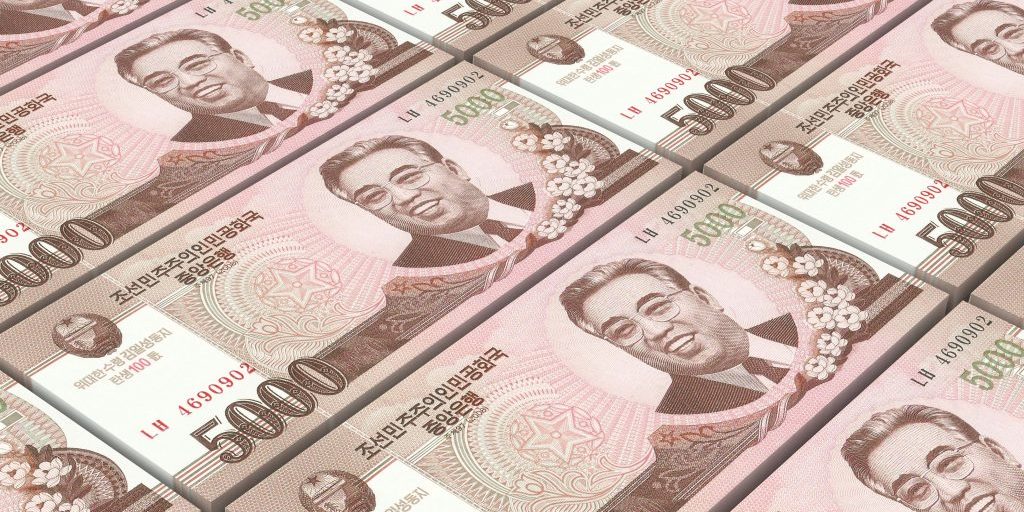The Newly Imposed Sanctions on North Korea
BY Roxanne Minott

LISTEN
The recent imposition of new sanctions on North Korea by President Trump will target people and companies that finance and facilitate trade with North Korea.
Trump explained his actions by stating that North Korea’s development of nuclear weapons and missiles poses a serious threat to world peace and security. He stated that his new executive order will eliminate sources of income that finance North Korea’s attempts to create nuclear weapons, and strengthen the power of the Treasury Department to target those persons and companies that engage in a considerable amount of trade with North Korea.
Additionally, according to Reuters, the central bank of China has directed its financial institutions to cease engaging in business dealings with North Korea, an action that could potentially have disastrous economic consequences for North Korea. It is unknown whether the moves were coordinated previously, but China has become weary of North Korea’s behavior, and Trump has encouraged them to do more to prevent Kim Jong Un, the leader of North Korea, from developing nuclear missiles. Experts on the region praised the two actions.
According to Michael Montgomery, a former Department of State Foreign Service Officer whose assignments include acting as State’s action officer for country embargoes, including the one on North Korea in 1985-86, “the new sanctions will put some pressure on people and companies with which the North Korean government has done business, and those people and companies may bring some level of additional pressure on the Kim regime.”
Montgomery also said, “when an embargo is an eccentricity of U.S. foreign policy, extraterritoriality is a bad idea that complicates our relations with other countries – including close allies – that are not themselves targets of the embargo.” “In this case, however, the Kim regime’s behavior has been so far over the line for so long that we can get away with it for as long as third countries continue to share our view that the North Korean government is being needlessly provocative and even reckless. We must not, however, overplay our hand and this week’s Trump speech at the UN would make a good checklist of things we should not be doing including, but not limited to, name-calling and threatening.”
However, the announcement of the new sanctions will likely increase tensions with Pyongyang, in which 19 missile tests and one nuclear test were performed. In 2016, North Korea conducted 26 missile tests. The rate at which North Korea is performing its tests is indicative of two things:
1. In all likelihood, it is creating its own missiles, and
2. It is nearing its stated objective of being able to target the United States with an intercontinental ballistic missile armed as a nuclear weapon.
It is believed that North Korea is in possession of 60 nuclear weapons, and that the United States and others have declared that North Korea should give up its nuclear weapons. But Pyongyang has not given any sign that it will. The United States has also initiated sanctions at the UN, where it is cooperating with China and Russia. The newly imposed sanctions placed a limit on North Korea’s oil imports, banned textile exports and terminated extra overseas labor contracts with North Korea.
However, the United States had to let go of its stricter demands, including an oil embargo and travel ban on North Korea, and the ability to inspect any ships believed to be transporting illegal goods to or from North Korea. Such concessions were made in order to include Russia and China in a sanctions resolution. Although both countries disapprove of North Korea’s actions, they do not wish to see the nation fall into a state of instability.
North Korea performed three tests of intercontinental ballistic missiles in July that have the capacity to reach the United States. In response, the UN passed sanctions in August, after which more sanctions were passed earlier in September. Currently, North Korea is under U.S. sanctions, and many UN sanctions. However, until recently, there has been no indication that North Korea will modify its behavior. North Korea has successfully evaded sanctions for a very long time. But when U.S. Secretary of State Rex Tillerson spoke at the UN this month, he said there were some signs that North Korea was feeling the effects of the sanctions. For instance, the nation is starting to experience shortages of fuel.
Despite the sanctions that are in place, it may be most effective to engage in talks and negotiations with North Korea in an effort to persuade it to halt its nuclear and missile programs. Such an attempt has occurred in the past, and included the United States, North Korea, China, Japan, Russia and South Korea.
According to Montgomery, “It probably would be more productive to talk if intermediaries could open up an effective back channel in the near term and facilitate direct talks later. Additional sanctions and a lighter embargo might, however, be a way for the Trump Administration to position itself as having stood reasonably tall with regard to the bad behavior on the part of the North without devastating South Korea in the process. On this one subject, I find myself agreeing with Steve Bannon that there is no military option.”
LATEST STORIES



